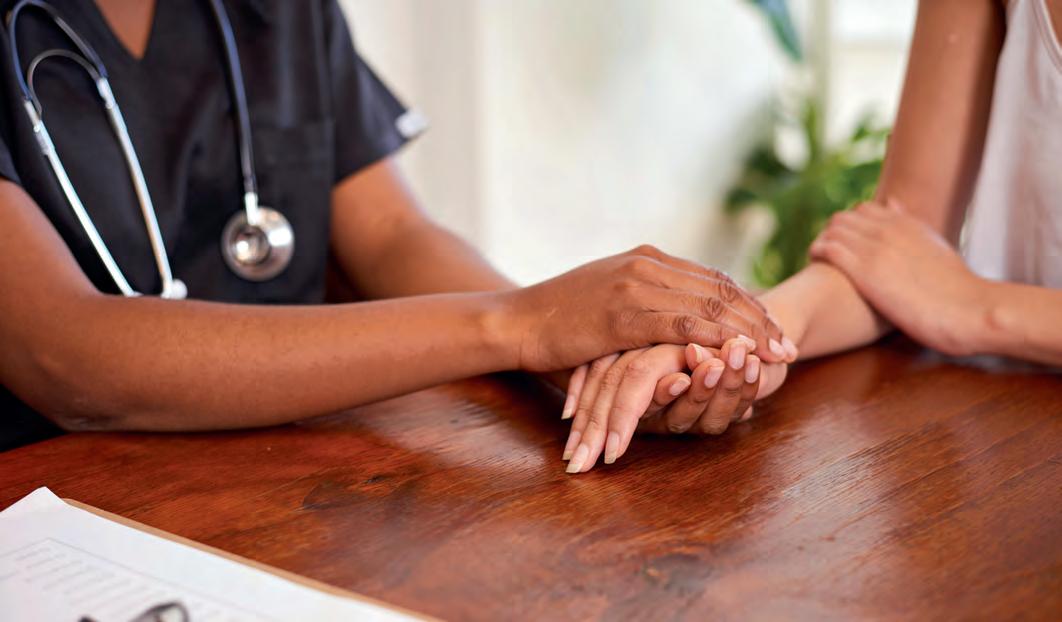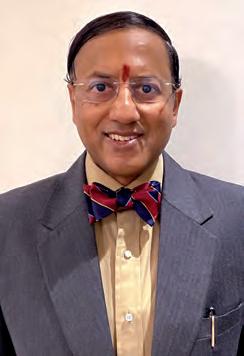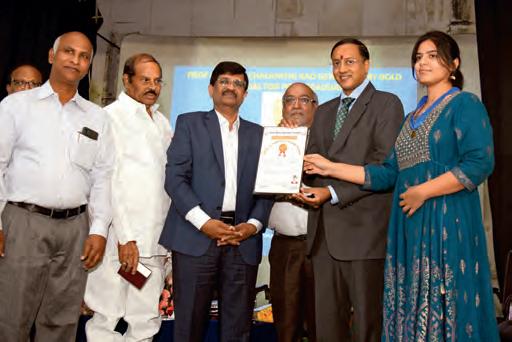
3 minute read
Counselling in Cancer Care
More than a cure, it’s comfort that is important, Dr P Raghu Ram writes in his column this quarter. Counselling is an important component of cancer care giving the patient the feeling that they are more in control at every stage of the treatment
This is a familiar scenario—Mrs. S, a 40-yearold lady was diagnosed with breast cancer. She was told in medical jargon that she had a “malignant tumour” and needed mastectomy. Even before she got over the shock of being diagnosed with cancer, a battery of tests was done, and soon enough, she underwent surgery.
Advertisement
Being informed of cancer diagnosis is a huge shock, particularly so, when it strikes at a young age. It doesn’t sink in so easily and one may really question if it is actually true. A loss of control over life steps in, with a range of emotions such as anxiety, anger, isolation and fear of dying, which are all too common and natural.

‘Will I lose my breast?’ is one of the first questions that comes to the mind when diagnosed with breast cancer. Cancer affects the body, mind and soul. And hence, treating just the body isn’t enough. Counselling is therefore a vitally important component of cancer care, which gives patients and their relatives the distinct
Counselling involves an unhurried discussion between the specialist and patient about the diagnosis/various treatment options in a sensitive and supportive environment opportunity to be better informed, better prepared and more importantly, feel more in control at every stage of the treatment.
Benefits of counselling
In my opinion, counselling constitutes more than 50 per cent of the treatment, as it plays a crucial role in the recovery of mind, body and soul. It involves an unhurried discussion between the specialist and patient about the diagnosis and various treatment options in a sensitive and supportive environment. Equally, adequate psychological and emotional support is given during counselling sessions, which provides the much needed ‘inner strength’ and determination to fight the ‘unwelcome visitor’ in their life.
Ask questions
Patients should be actively encouraged to ask questions regarding significance of various investigation modalities, treatment options and how they might impact on everyday life, possible side effects, the short and long term complications and many more. It is the specialist’s duty to clarify questions in a simple, effective and easy-to-understand format.
Communication is a distinct art to talk medicine in the language of the non-medical man. Compassion and empathy must be at its best whilst breaking bad news. In giving patients time and listening to them, doctors will find some of the real rewards of practising medicine.
I remind myself every day that listening to the patient is far more important than talking. In this day and age of heavy reliance on tests, one must not forget that the diagnosis of a condition, in the vast majority, can me made through the history of the patient and physical examination. Hence, good listening is the best diagnostic modality.

Communication skills necessary for doctors
Until a few years ago, “Communication Skills” was not even part of the Indian medical curriculum. Although it is now included in the new medical curriculum since 2019, there is still no structured, uniform and robust assessment process in place across the nation. It is pertinent to mention here that however knowledgeable and skilled one may be, it is virtually impossible to clear the under-graduate MBBS course or Specialist Fellowship Examination (post-graduate course) in the UK, without demonstrating adequate communication
Compassion and empathy must be at its best whilst breaking bad news. In giving patients time and listening to them, doctors will find some of the real rewards of practising medicine skills. A fail in this section means an overall fail, even if one does well in other aspects of the examination.
On the occasion of World Cancer Day, I request the powers that be to ensure communication skills and its formal robust assessment become an integral part of under-graduate and post-graduate medical curriculum in India. I conclude with a poignant statement made by Edward Livingston Trudeau, a 19th century physician, which is relevant even today—“Cure sometimes, Relieve often, but, Comfort always”.
This article was first published on World Cancer Day 2023 in The Times of India
The Prof PV Chalapathi Rao Gold Medal for the year 2023 was presented for the 8th consecutive year by Dr Raghu Ram to Dr Ankush Supriya, best outgoing post-graduate student in general surgery, from Osmania Medical College, at a function organised by Osmania Medical College Alumni Association, on March 29.








